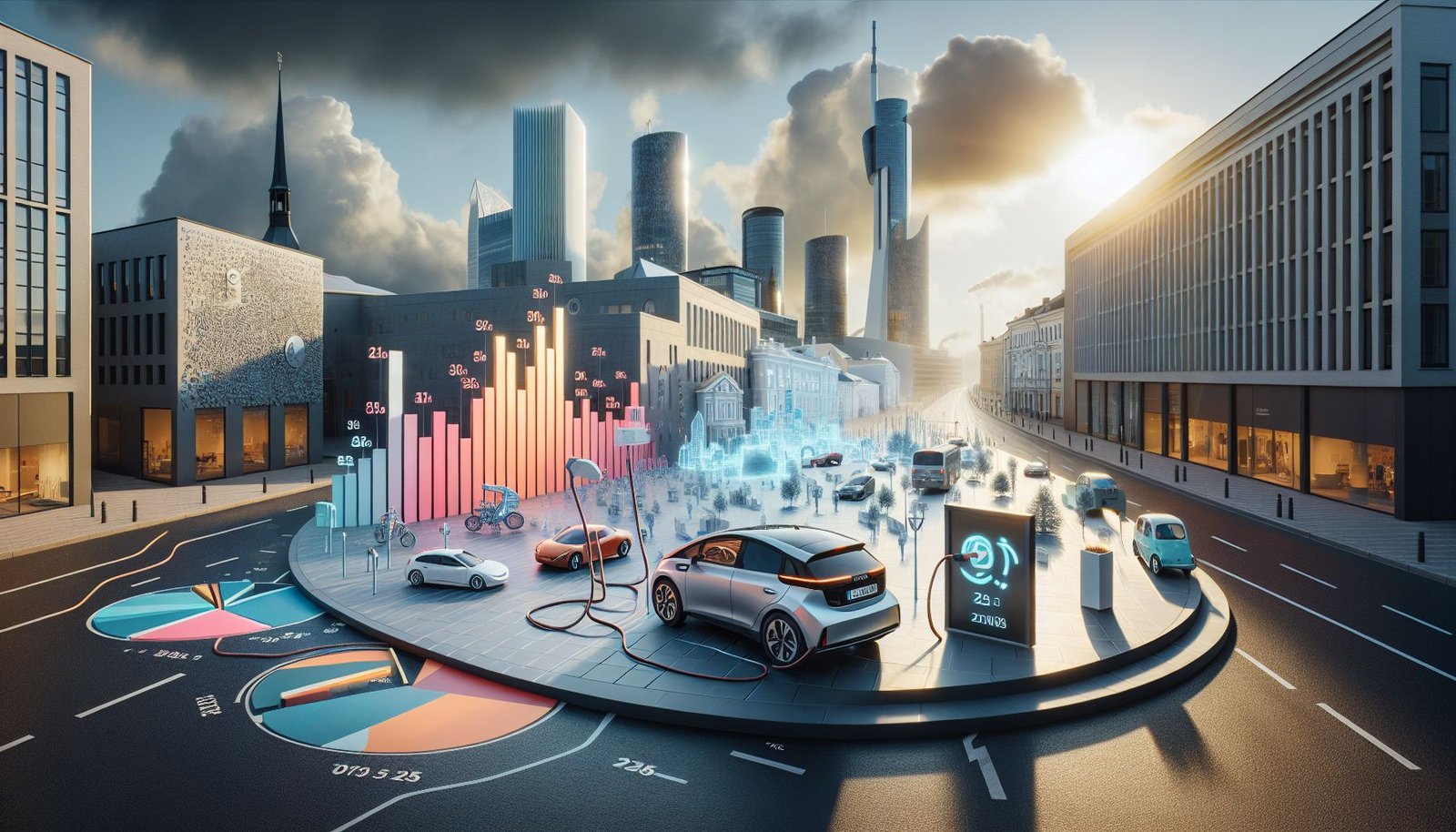Understanding Electric Cars
Electric cars, commonly referred to as electric vehicles (EVs), are automobiles that are powered by electricity rather than conventional internal combustion engines that run on gasoline or diesel. The fundamental principle behind electric cars lies in their use of electric motors, which convert electrical energy stored in batteries into mechanical energy for propulsion. Unlike traditional vehicles, which produce emissions from burning fossil fuels, EVs operate with zero tailpipe emissions, significantly contributing to cleaner air and reduced pollution.
There are primarily two types of electric vehicles: battery electric vehicles (BEVs) and plug-in hybrid electric vehicles (PHEVs). BEVs are solely powered by electric energy, utilizing large battery packs that can be charged from an external power source. In contrast, PHEVs combine both an electric motor and a gasoline engine, allowing for electric-only driving for shorter distances while still providing the option to switch to gasoline for longer trips. This dual functionality makes PHEVs a transitional option for those not yet ready to fully embrace electric mobility.
The operational efficiency of electric cars is largely dependent on advancements in battery technology. Lithium-ion batteries, commonly used in modern electric vehicles, offer a balance of high energy density and quicker charging capabilities. These innovations have greatly improved the driving range of EVs, with many models now capable of exceeding 200 miles on a single charge, thus alleviating range anxiety. Furthermore, the increasing availability of public charging stations and home charging solutions contributes to the growing appeal of electric cars among consumers.
As public awareness about environmental issues rises, the popularity of electric vehicles continues to grow. Governments around the world are supporting this shift through incentives and regulations aimed at promoting cleaner transportation options. The evolving capabilities of electric cars, coupled with a commitment to sustainable practices, mark a significant step towards a greener tomorrow.
The Environmental Benefits of Electric Vehicles
Electric vehicles (EVs) represent a significant advancement in the quest for cleaner transportation solutions. One of the most notable environmental benefits of electric cars is their ability to drastically reduce greenhouse gas emissions. Traditional gasoline and diesel vehicles release carbon dioxide and other pollutants into the atmosphere, contributing to climate change and air quality issues. In contrast, electric cars produce zero tailpipe emissions, effectively eliminating a considerable source of urban air pollution. This shift in automobile technology not only helps reduce the overall carbon footprint but also plays a crucial role in achieving climate goals.
Moreover, the reduction of harmful pollutants, such as nitrogen oxides and particulate matter, is essential for improving overall air quality. These pollutants are responsible for numerous respiratory issues and other health problems among populations, particularly in urban areas where vehicle congestion is prevalent. By minimizing these emissions, electric vehicles help create healthier environments, leading to a higher quality of life for residents. Enhanced air quality is not only beneficial for public health but also supports ecosystems that may otherwise be damaged by pollution.
Furthermore, the environmental benefits of electric vehicles can be significantly amplified when coupled with renewable energy sources. Many EVs are charged using electricity generated from solar, wind, or hydroelectric power, which are all sustainable alternatives to fossil fuels. This synergy between electric vehicles and renewable energy enhances their green credentials, making it possible to create a transportation system that is both environmentally friendly and sustainable. As the grid becomes increasingly powered by renewable energy, the overall emissions associated with electric vehicles will continue to decline, projecting a future where clean air and health can thrive.
Health Implications of Reduced Air Pollution
The transition to electric vehicles (EVs) is proving to be pivotal in enhancing public health by mitigating air pollution. Studies have established a significant correlation between improved air quality and reduced incidence of respiratory illnesses and cardiovascular diseases. Since electric cars produce zero tailpipe emissions, their adoption leads to a considerable reduction in harmful pollutants such as nitrogen oxides, particulate matter, and volatile organic compounds. These pollutants are notorious for exacerbating health issues, particularly in urban areas where traffic congestion is prevalent.
Research indicates that communities with higher electric vehicle penetration have reported lower hospitalization rates due to respiratory conditions such as asthma and chronic obstructive pulmonary disease (COPD). Furthermore, cardiovascular health also benefits significantly from cleaner air, as pollutants have been directly linked to increased risks of heart attacks and strokes. By reducing these harmful emissions, electric vehicles offer a pragmatic approach to improving the overall health landscape of communities.
The implications of cleaner air extend beyond physical health to encompass mental well-being. Studies suggest that reduced air pollution contributes to enhanced quality of life for individuals, leading to lower stress levels and improved mood. This can be particularly beneficial in densely populated areas where air quality has historically been a concern. Moreover, a healthier population has broader economic impacts, as decreased healthcare costs and increased productivity can stimulate local economies.
In essence, the shift towards electric cars is not solely about environmental sustainability; it is also a significant stride towards safeguarding public health. This transition offers the potential to lower the burden of disease and enhance longevity, underscoring the vital role electric vehicles play in creating a healthier, cleaner future for all communities.
The Future of Electric Vehicles and Clean Air Initiatives
The future of electric vehicles (EVs) is poised to play a significant role in improving air quality and promoting sustainable transport solutions. As awareness regarding environmental issues rises, both governmental and non-governmental entities are increasingly focusing on the adoption of clean air initiatives. These initiatives aim to reduce pollution and enhance public health, making the widespread acceptance of electric vehicles a critical component of any strategy. With advancements in battery technology and charging infrastructure, EVs are becoming more accessible and practical for everyday use.
Governments across the globe are implementing policies designed to promote the adoption of electric vehicles. These include tax incentives, rebates for EV purchases, and funding for charging infrastructure development. Such measures are crucial as they alleviate the financial burden associated with switching to electric alternatives and encourage both individuals and businesses to consider cleaner transportation options. Furthermore, some cities have introduced low-emission zones, where only electric or hybrid vehicles are permitted, thereby directly encouraging a shift away from fossil fuel-powered cars.
In addition to governmental support, innovations in battery technology are crucial for the future of electric vehicles and clean air initiatives. Recent advancements have led to increased battery efficiency, improved charging times, and longer ranges for EVs. As manufacturers invest in research and development, this technological progress will enhance the appeal and practicality of electric vehicles. The growth of a robust and widespread charging network will also contribute to reducing range anxiety among potential users, promoting higher adoption rates.
Ultimately, the successful transition to electric vehicles hinges on the collective responsibility of consumers, corporations, and governments. By working together, these entities can create a sustainable future where clean air initiatives and electric vehicle adoption are no longer separate goals, but rather intertwined components of a broader vision for environmental stewardship. The move towards a greener tomorrow is not only desirable but imperative for the health of our planet and future generations.


No responses yet